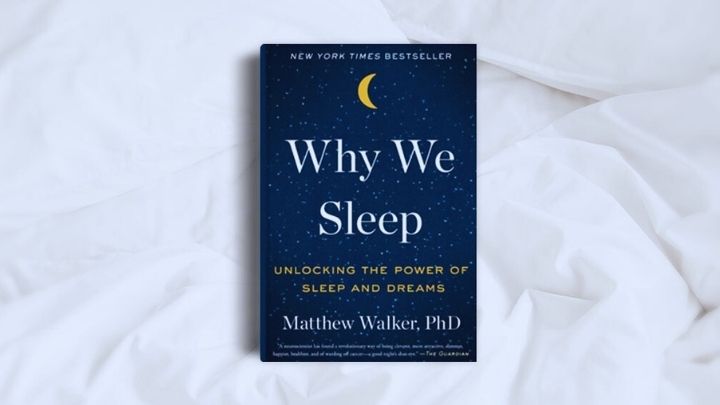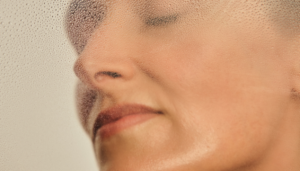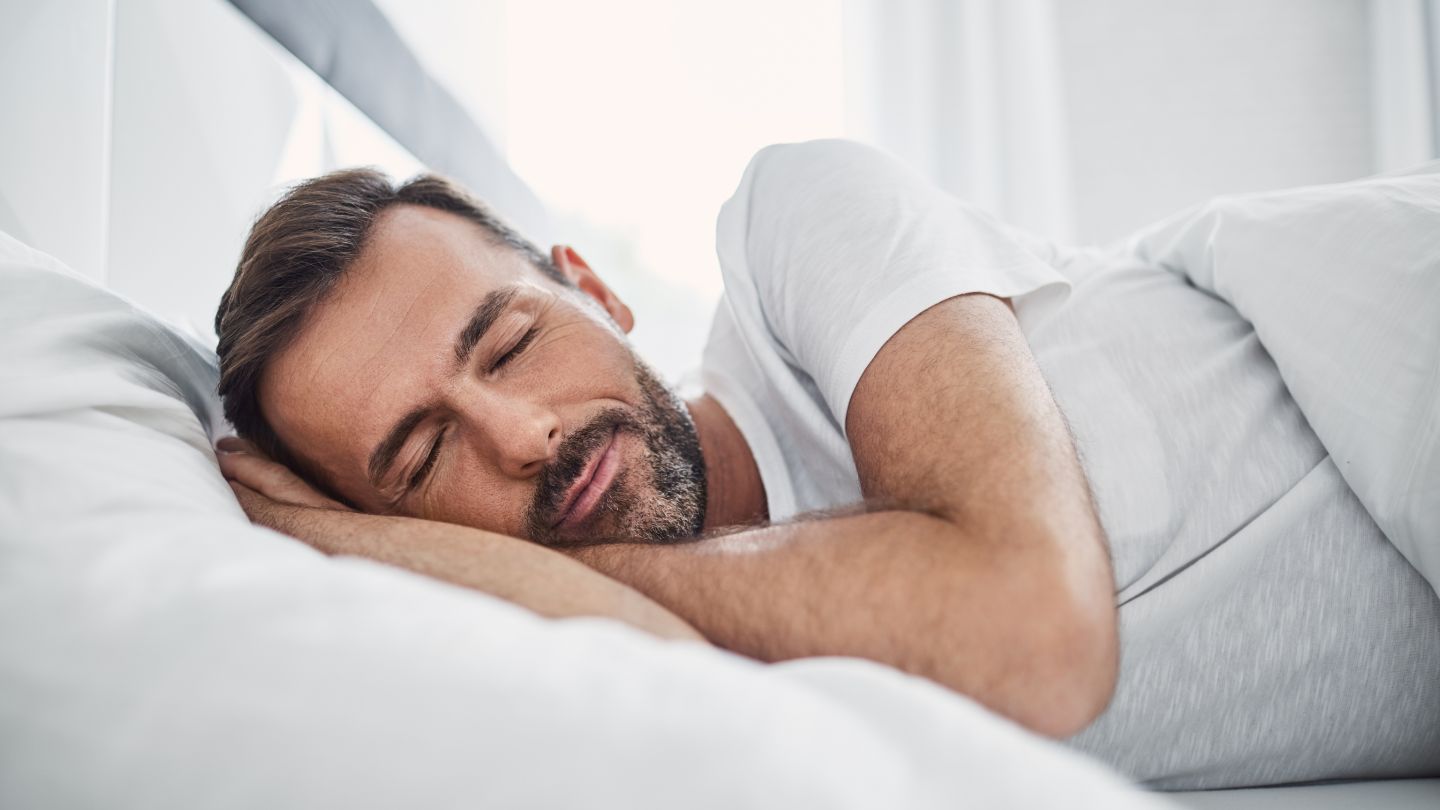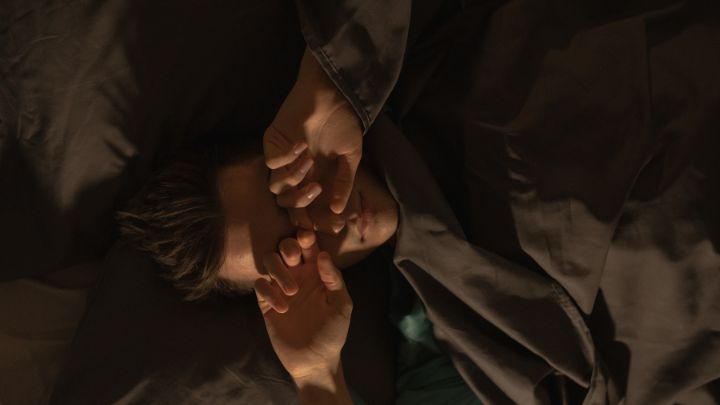Do we sleep to live, or live to sleep? Did you know that men who sleep only five hours a night have smaller testicles than those who sleep seven hours or more? And if you sleep just four to five hours, your testosterone levels can be as low as someone 10 years older.
This isn’t just about men; women’s health is also affected by lack of sleep. Think of it as the Yin and Yang. As with the balance between these opposite forces, the balance between sleep and wakefulness is crucial.

In this article, we’re going to look at how important sleep is for your health, your mind, and even how long you live. From what happens to your brain and body without enough sleep, to tips on how to sleep better–we took insights mostly from Dr. Matthew Walker, sleep expert and author of best-selling book ‘’Why we sleep’’.
In this article
Free guide to reverse your biological age

- Master the science of rejuvenation.
- Apply proven tips to turn back the clock.
- Transform your health with top longevity specialists.
What is sleep anyway?
Every night, most of us do something remarkable: we close our eyes and leave our conscious state for several hours, landing in a world of dreams and deep sleep.
When we wake up, we barely remember anything about the several hours passed. Sure, sometimes we do remember our dreams, but the majority of us, are simply letting this event pass by day, without knowing what is occurring.
In fact, nobody can really describe what sleep is. But here are a few things scientists have noted about it so far. Sleep:
- is a time of reduced activity.
- is linked with a typical posture of ‘’relaxing, lying down, and eyes closed’’, especially in humans.
- is a period of decreased sensitivity and responsiveness to external stimuli.
- can be relatively easy to reverse (compared to hibernation or coma).
- can be defined based on brain wave activity patterns.

The shorter your sleep, the shorter your lifespan.
An average person spends around 27 years of their lifetime sleeping. This means, you’re spending about ⅓ of your life, in a horizontal, motionless position, withdrawn from this hectic world.
Sleep is where you enter the world where laws of space, time, and causality are all broken. It’s where things might be unnatural, but still feel perfectly real as you experience them sometimes in your dreams.
But dreams are only part of the picture, a substrate of sleep. But, why do we even sleep? There are different takes on this, from philosophical to scientific. What we know is we share similar daily patterns of rest and activity with other organisms, though some are known to sleep for longer, some for fewer hours.
Why we sleep?
Inactivity theory
The inactivity theory, one of the oldest ideas about sleep, suggests that staying still at night helped early animals avoid danger. By being quiet and inactive, they were less likely to have accidents or be caught by predators. This behaviour may have evolved into sleep. However, some argue it’s safer to stay awake and alert to dangers.
Energy conservation theory
This theory proposes that sleep helps save energy, crucial when food was scarce. During sleep, humans and other species use less energy, shown by lower body temperature and caloric needs. This supports the idea that one key role of sleep is to conserve energy.
Restorative theories
Restorative theories argue that sleep lets the body repair and rejuvenate. Without sleep, animals lose immune functions and can die quickly. Sleep is when the body grows muscle, repairs tissue, and produces important hormones. It’s also crucial for clearing out brain waste, including harmful proteins linked to Alzheimer’s.
Synaptic homeostasis theory
This newer theory suggests sleep is needed to manage the brain’s connections. Daily activities increase synapses, which could overload the brain without sleep to trim back unnecessary ones. Research shows synapses shrink and expand with sleep and wakefulness, indicating this pruning process is vital for brain health.
Brain plasticity theory
Recent studies link sleep to brain plasticity, the brain’s ability to change and organize. Sleep is crucial for brain development in infants and affects adults’ ability to learn and perform tasks. This connection suggests sleep is essential for the brain’s structure and function, influencing learning and memory.

During REM sleep, our brains are almost as active as when we’re awake, engaging in a complex process of strengthening neural connections that underpin our capacity for creativity. This stage of sleep acts as a neural workspace, where the brain synthesises and integrates memories, thoughts, and experiences. It’s here, in the depths of the night, that our brains are free to explore, recombine, and reframe information without the constraints of logical boundaries we often adhere to during waking hours. That’s the essence of creativity.
Although the exact reasons for sleep remain a subject of ongoing research, there are countless studies available proving its critical importance. Let’s explore the necessity of quality sleep by examining its benefits and the severe repercussions of overlooking it.
The science of sleep
Sleep is what gets your physical health, mental clarity, and emotional stability together. It’s a dynamic process that touches every aspect of health.
Whilst we’re usually unaware when we’re asleep, and observing someone else sleep doesn’t give us a full picture of what’s happening inside their brain and body. Decades of research into how our brains and bodies work during sleep have been teaching us a lot.
For physical health
Physiologically, sleep engages your body in several restorative processes essential for optimal functioning. During the deeper stages of sleep, your body undergoes significant repair and regeneration, including muscle growth, tissue repair, and the release of growth hormones vital for recovery and health.
For cognitive health
From a neurological perspective, sleep is indispensable for cognitive processes. It consolidates memories, facilitates learning, and is crucial for your brain’s ability to process information efficiently.
Research demonstrates that during sleep, the brain reorganises and recharges itself, removing toxins accumulated throughout the day. This nightly cleansing, facilitated by the glymphatic system, is particularly critical for preventing neurodegenerative diseases like Alzheimer’s, which is linked to the accumulation of beta-amyloid plaques.
For emotional health
The impact of sleep on emotional and psychological well-being is equally significant. Adequate sleep regulates mood, enhances emotional resilience, and lowers the risk of mental health disorders.
Sleep deprivation is linked to increased stress, anxiety, and depression. The mechanisms behind these effects include the regulation of neurotransmitters and stress hormones, which are balanced during sleep.
Insufficient sleep disrupts the balance of serotonin and cortisol, exacerbating stress responses and emotional instability.
For heart health
As you drift into sleep and transition into non-REM stages, your heart rate and blood pressure drop, signalling a period of rest and recovery for your heart. This is due to the parasympathetic system taking the lead, allowing your heart to take a break from its daytime exertions.
During REM sleep and upon waking, your sympathetic system kicks in, bringing your heart rate and blood pressure back to their normal, awake levels. A sudden spike in these upon waking has been linked with increased risks of heart-related issues like angina and heart attacks.
Lack of sufficient sleep or frequent awakenings can elevate the risk of several heart conditions, including coronary heart disease, high blood pressure, obesity, and stroke.
For hormonal health
Your body’s hormone production follows a diurnal rhythm, closely tied to your sleep cycle and circadian rhythms. In the morning, hormones like cortisol spike to reduce sleepiness and boost wakefulness.
Other hormones follow a 24-hour cycle that adjusts through different life stages, such as the nighttime surges in hormones related to growth and puberty in children.
For optimal metabolism
Your body’s fat processing is influenced by various circadian rhythms, including in the liver and muscles, ensuring fats are digested efficiently at the right times. Disrupting these rhythms, for example by eating late, can alter how your body manages fat.
Insufficient or poor-quality sleep can lead to increased hunger hormone levels, reduced insulin sensitivity, heightened cravings for unhealthy foods, reduced physical activity, and ultimately, metabolic syndrome, contributing to overweight and obesity.
For immune health
Sleep causes changes in your breathing patterns, often resulting in slower and shallower breaths, and reduced oxygen intake. These changes can exacerbate conditions like asthma or COPD, especially during early morning hours.
Sleep also plays a critical role in regulating immune function. Certain immune cells ramp up their activity during sleep, which explains why inadequate sleep can make you more susceptible to infections such as the common cold.
12 tips to sleep better
Despite numerous factors that can disrupt sleep, an almost equal number of effective strategies and treatments exist to enhance it. Here are 12 tips, from sleep expert, Dr. Matthew Walker.

Discover top 15 longevity books you need to read.
1. A sleep schedule is as important as your tooth brushing routine.
Keeping a consistent sleep schedule is key to better sleep quality. Going to bed and waking up at the same time every day, even on weekends, helps regulate your body’s internal clock and improves your sleep over time.
2. Exercise more often, but be mindful of the timing.
Regular exercise can significantly improve your sleep quality, especially if done in the morning or afternoon. Avoid intense workouts close to bedtime, as they can energize you too much before sleep.
3. Understand how caffeine and nicotine are impacting your body.
Caffeine and nicotine are stimulants that can interfere with your ability to fall asleep. Limit their use, especially in the hours leading up to bedtime, to avoid sleep disruptions.
4. Limit your use of alcohol. It does nothing nice to your body.
While alcohol might help you ‘’relax’’, it actually disrupts your sleep cycle, particularly the REM stage of sleep, which is crucial for memory and learning. Try to minimise alcohol consumption, especially in the evening.
5. Eat light before bedtime.
Eating large or spicy meals late at night can lead to discomfort and disrupt your sleep. If you’re hungry before bed, opt for a light snack instead.
6. Check your medicines for sleep side effects.
Some medications can impact your sleep. If you suspect your medication is affecting your sleep, consult with a healthcare provider for possible alternatives.
7. Nap early, not late.
Naps can be a great way to recharge, but timing is everything. Early afternoon naps are beneficial, but napping too late in the day can interfere with nighttime sleep.
8. Relax and unwind to signal sleep time.
Develop a pre-sleep routine to relax and signal your body it’s time to sleep. Reading, listening to soothing music, or practising relaxation techniques can help.
9. Take a warm bath to ease into sleep.
Taking a hot bath before bed can help lower your body temperature afterwards, which promotes sleep. It’s a relaxing way to prepare your body for rest.
10. Make your bedroom sleep-ready.
Your bedroom should be optimised for sleep: cool, dark, and quiet. Consider blackout curtains, earplugs, or a white noise machine to create the perfect sleep setting.
11. Get as much sunlight as you can.
Exposure to natural light during the day helps maintain a healthy sleep-wake cycle. Try to get outside in natural sunlight for at least 30 minutes daily.
12. Trick your brain.
If you find yourself awake for more than 20 minutes during the night, get out of bed and do something relaxing until you feel sleepy again. Avoid screen time, as the light can stimulate your brain and make it harder to return to sleep.
Implementing these tips can lead to significant improvements in your sleep quality and, by extension, your overall health and well-being.
Sleep throughout history and cultures
Ideas surrounding sleep have always fascinated ancient civilizations. The Rishis of India, among the earliest philosophers, distinguished between states of wakefulness and dreaming.
In Egypt, temples dedicated to the goddess Isis served as places where followers would participate in early forms of hypnosis and dream analysis with priests. Similarly, the Greeks and Romans revered sleep gods like Hypnos, Somnus, and Morpheus, believed to influence the dream world.
Comparisons between sleep and death are common in ancient wisdom, as shown by a Chinese proverb from Lao Tzu: “He holds nothing back from life; Therefore he is ready for death, As a man is ready for sleep, After a good day’s work.”












